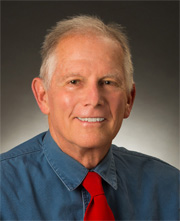AP to Reporters Stop Using 'Chain Migration'
By JOE GUZZARDI
April 22, 2018
Saturday PM
(SitNews) - The establishment media has dramatically moved away from using precise language in its reporting of immigration stories. In the latest effort to distract the reading public from understanding unsustainable immigration's broad consequences, the Associated Press announced that journalists should "avoid" using "chain migration" unless it's a direct quote, and then the term should be explained. The reasons AP cited for banning "chain migration" is that it's "applied by immigration hardliners" in reference to what the federal government calls family reunification.
Chain migration has been part of the immigration lexicon for decades. Even in Congress, those who push for open borders, amnesty and limited internal enforcement have often included the words "chain migration" in their dialogues. In 2010, when he was promoting one of the various DREAM Act versions, Sen. Richard Durbin pointed out that one of the advantages of his legislation was that it would not allow "chain migration."
In today's poisoned atmosphere, mainstream, pro-immigration reporters are unlikely to correctly explain how family reunification relates to population growth. Family reunification, a large population growth driver, means that millions of extended family members including cousins, aunts, uncles and in-laws will come to the U.S. regardless of their educations, skills or backgrounds.
Department of Homeland Security data shows that between 2005 and 2016 about 9.3 million foreign nationals came to the U.S. as chain migrants. During that same time period, more than 13 million lifetime work-authorized foreign nationals entered the U.S. through legal immigration processes. Seven out of ten new arrivals come to America as part of the chain. Then, on average, each immigrant present sponsors 3.45 additional family members for green cards.
AP content, according to its website, reaches more than half of the world's population. When the powerful AP bans the words "illegal immigrant," purposely conflates lawful immigrants with illegal immigrants and then blocks the use of "chain migration," it's guilty of encouraging inaccurate journalism in an effort to influence readers. Illegal alien, the correct term, appears repeatedly throughout the U.S. Code, the Immigration Reform and Control Act, and the Immigration and Nationality Act, but has mostly vanished from mainstream media copy. The Media Research Center found that the public favors giving legal status to "undocumented" workers over "illegal immigrants." Amnesty is the end result that the AP favors.
Journalists who want to keep their jobs should heed the AP mandate. An Israeli Rutgers University student was fired from The Daily Targum, the campus newspaper, when he objected to editorial changes that substituted "undocumented" for "illegal" in reference to immigrants who entered unlawfully. His editors pointed to the AP Stylebook to defend their decision. And an internet subscription-only legal newsletter stopped posting the opinions of retired immigration judges when they refused to comply with its editorial board's demand that they replace "illegal alien" with "undocumented."
In their opinion column, the judges pointed to the U.S. Court of Appeals for the Fifth Circuit's pronouncement in the Texas v. USA case that challenged President Obama's deferred action for childhood arrivals. The court compared the term "undocumented immigrant" to "near-gobbledygook." The judges also wrote that they found the newsletter censorship "oppressive, derogatory, and inflammatory to the American ideals of freedom of thought, [and] expression...." They referenced William Lutz, author of "The New Doublespeak" who wrote that doublespeak is language "which makes the bad seem good, the negative seem positive, the unpleasant seem unattractive, or at least tolerable."
The true hardliner in the immigration imbroglio is the media that stifles debate with its politically correct language, and brazenly rejects the standards of journalism. The ethics code of the Society of Professional Journalists requires that advocacy be identified, and that the open and civil exchange of views should be supported, even if reporters find those views "repugnant."
In today's media, immigration stories are thinly disguised editorials; proponents of commonsense immigration are dismissed. Words matter. Reporters are professionally obligated to use correct language.
Joe Guzzardi ©2018
Joe Guzzardi and Capsweb.org
This column is distributed by Cagle Cartoons newspaper syndicate.
Joe Guzzardi is a Californians for Population Stabilization Senior Writing Fellow whose columns have been syndicated since 1987. This column has been edited by the author. Representations of fact and opinions are solely those of the author.
Contact him at joeguzzardi@capsweb.org. |

